A large Pew survey shows that Donald Trump’s supporters are more tolerant, open-minded, respectful and understanding than are Hillary Clinton’s vibrantly diverse supporters in her coalition of ethnic, sexual, professional and progressive factions.
“Clinton backers – particularly highly educated ones – have more difficulty respecting Trump supporters than the other way around,” Pew acknowledged in the Nov. 1 report.
That data is a mirror image of the media-magnified portrayal of Trump’s supporters that Democratic partisans have constructed throughout the 2016 campaign.
That image has been fostered by undercover Democratic groups which used extensive funding to arrange camera-ready fights at Trump’s rallies, by Clinton’s scripted eagerness to portray Trump’s supporters as irredeemable or insanely hostile to gays, migrant foreigners and Islamic believers, and by the media’s eagerness to showcase conflict at Trump rallies.
But Pew’s data shows that:
nearly six-in-ten registered voters who back Clinton (58%) say they have a “hard time” respecting someone who supports Trump for president; 40% say they have “no trouble” with it. Nearly the opposite is true among Trump supporters, with 56% saying they have no trouble respecting someone who backs Clinton and 40% saying they do have trouble with it.
That’s a 17-point tolerance difference between the two parties.
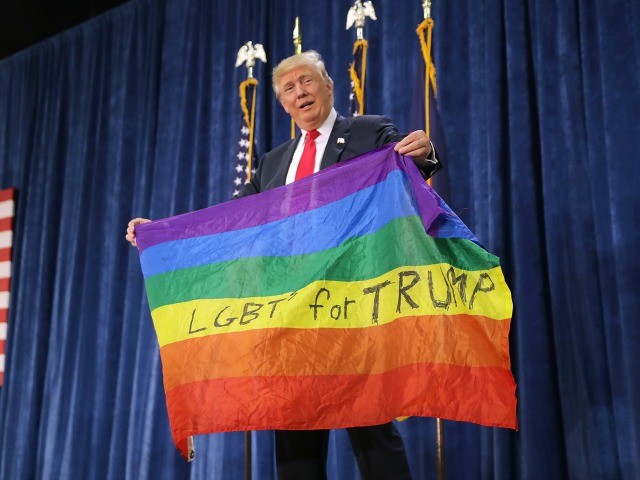
Republican presidential nominee Donald Trump holds a campaign rally at the Bank of Colorado Arena on the campus of University of Northern Colorado October 30, 2016 in Greeley, Colorado.
The pro-Clinton group that has the most difficulty tolerating their political rivals are white women, many of whom are university educated. Pew’s poll showed that 68 percent of this group “have a hard time” respecting Trump’s supporters. Also, 66 percent of all Clinton women supporters with college qualifications have a hard time respecting Trump’s supporters.
In contrast, 53 percent of Clinton’s non-college female supporters say they have a hard time reconciling with Trump’s supporters. 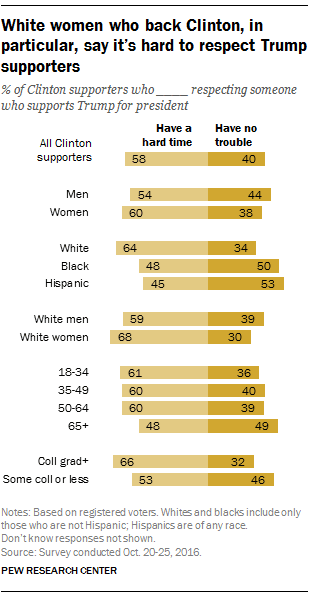
There’s little difference between the various groups of Trump supporters, except for age.
The least tolerant Trump group are men older than 65, but only 45 percent of them say they have a hard time respecting Clinton supporters. That’s 21 points lower than the intolerance among Clinton’s female college-educated supporters.
The most tolerant of Trump’s group are young people aged 18 to 34, of whom only 29 percent “have a hard time” dealing with Clinton’s supporters.
This younger group of Trump’s supporters is a mirror image of Clinton’s female groups, because more than two-thirds of Trump’s young supporters — 69 percent — say they “have no trouble” respecting Clinton supporters.
Clinton’s younger supporters, however, are far less tolerant that Trump’s younger supporters. They’re 32 percentage points less willing to tolerate their peers in Trump’s campaign.
Pew’s large survey of 2,583 adults, including 2,120 registered voters, was conducted from Oct. 20 to Oct. 25, well after Trump was portrayed as a sexual predator by Clinton and her allies, and well after Trump’s supporters had been carefully described by Clinton as insanely hostile and unAmerican.
Here’s Clinton’s full Sept. 9 statement at her fundraiser with gay supporters;
“You know, to just be grossly generalistic, you could put half of Trump’s supporters into what I call the basket of deplorables. Right? The racist, sexist, homophobic, xenophobic, Islamophobic — you name it. And unfortunately there are people like that. And he has lifted them up. He has given voice to their websites that used to only have 11,000 people, now have 11 million. He tweets and retweets offensive, hateful, mean-spirited rhetoric. Now some of those folks, they are irredeemable, but thankfully they are not America.
Clinton’s speech spotlights the difficulty that Democrats have in keeping their diverse, chaotic and often incompatible coalition united in the run-up to an election. There’s little to unite this diversity except shared hostility to their supposedly hateful political rivals, which is echoed in Clinton’s slogans, “Stronger Together” and “Love trumps hate.”
In contrast, Trump has united most of the GOP’s fewer factions — employees, employers, social-conservatives and foreign policy hawks — around a unifying nationalist message, “Make America Great Again.”
Read the Pew survey here.
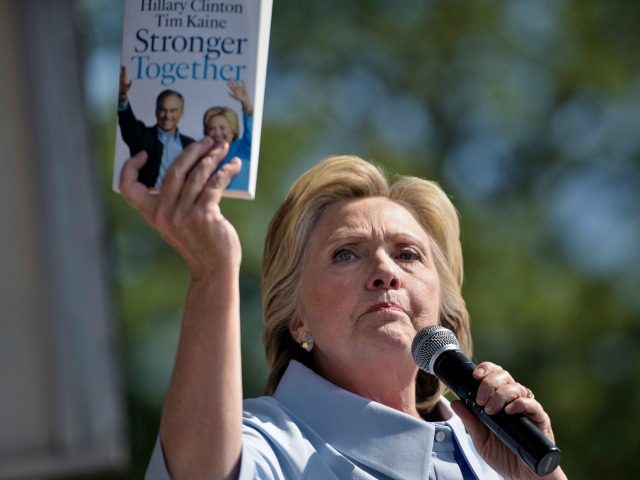
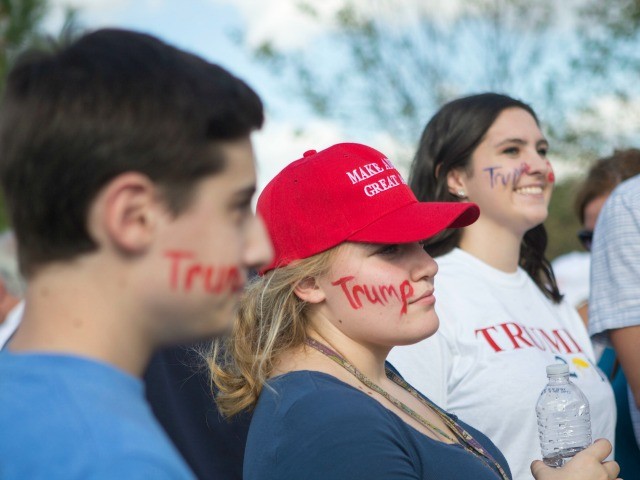
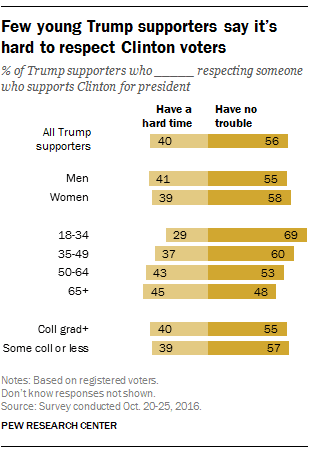
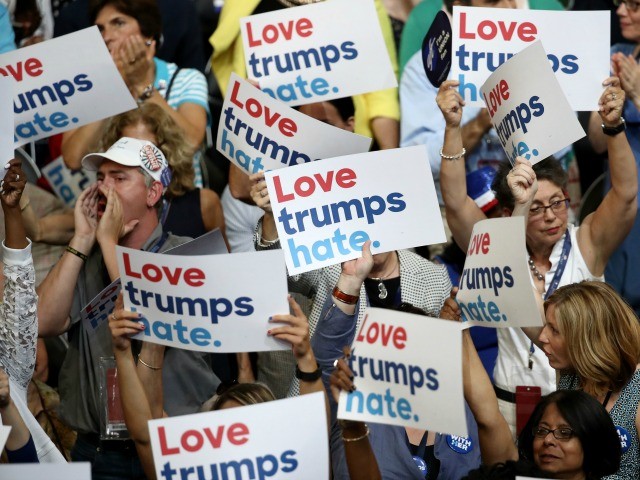
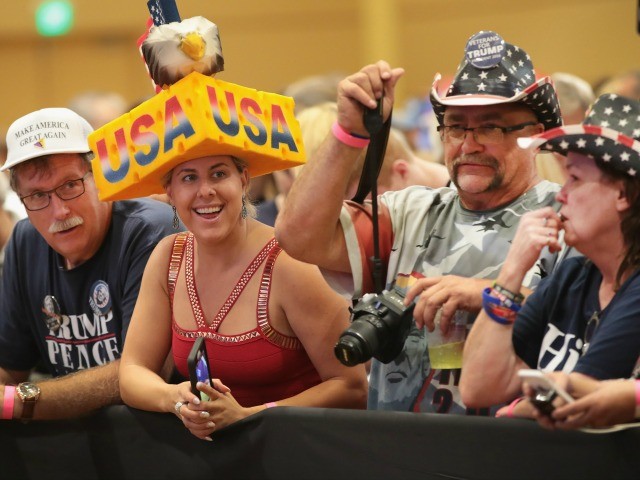
COMMENTS
Please let us know if you're having issues with commenting.